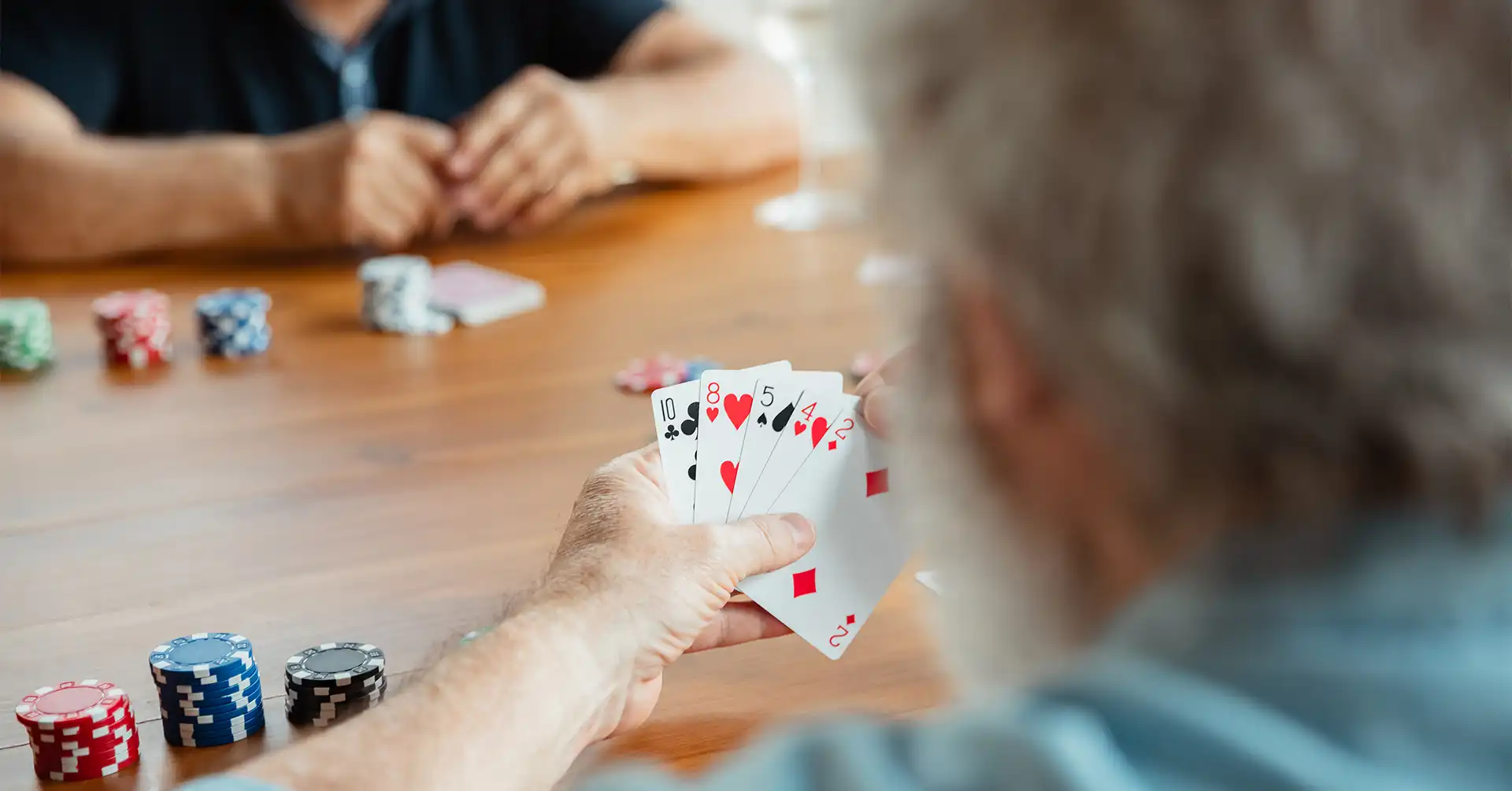Hello, my wonderful readers! As we age, maintaining cognitive function becomes increasingly vital for a fulfilling and independent life. Amidst various activities aimed at preserving mental acuity, one often overlooked yet incredibly beneficial pastime is solitaire. Solitaire For Old Individuals isn’t just a leisurely game; it’s a potent tool for cognitive maintenance.
Unlike passive activities such as watching television, solitaire actively engages the mind, stimulating critical cognitive functions such as memory, problem-solving, and strategic planning. The simplicity of its rules, coupled with the complexity of possible moves, makes it an ideal exercise for Old individuals seeking to keep their minds sharp.
Moreover, solitaire offers a range of cognitive benefits tailored to the needs of older people. By requiring players to concentrate, analyze patterns, and make decisions, it effectively exercises both short-term and long-term memory. Additionally, the game promotes spatial awareness and hand-eye coordination, skills that are particularly valuable for maintaining independence in daily activities.
Furthermore, the therapeutic aspects of solitaire cannot be overlooked. Engaging in a familiar and enjoyable activity like solitaire can reduce stress and anxiety, providing a mental escape from the challenges of aging. Its solitary nature also offers a peaceful opportunity for introspection and relaxation.
In this blog series, we will delve deeper into the multifaceted benefits of Solitaire For Old Individuals, exploring its cognitive, emotional, and social advantages. Join us as we uncover the transformative power of this timeless game in supporting cognitive health and well-being in our senior community.
Social Benefits Of Solitaire For Old Individuals
Stimulates Social Interaction
Solitaire, often considered a solitary game, paradoxically fosters social interaction among Old individuals. While it may be played alone, it also serves as a catalyst for conversation and connection when enjoyed in a group setting. Older People can gather around a table, take turns playing, and engage in light-hearted banter, thus promoting socialization and a sense of camaraderie.
Facilitates Intergenerational Bonding
Solitaire provides a bridge between generations, offering an opportunity for Old individuals to connect with younger family members or caregivers. Teaching grandchildren or younger relatives how to play solitaire not only strengthens familial bonds but also promotes intergenerational understanding and communication.
Encourages Community Engagement
In senior living facilities or community centers, solitaire tournaments or casual game nights can become regular events, encouraging participation and fostering a sense of belonging among residents. These communal activities not only provide entertainment but also create an avenue for older people to interact, share experiences, and form new friendships.
Promotes Mental Stimulation in Group Settings
When played in a group, solitaire becomes more than just a game; it becomes a mental exercise that encourages healthy competition and cognitive engagement. Sharing strategies, discussing moves, and observing others’ gameplay stimulate mental agility and problem-solving skills, contributing to overall cognitive well-being.
Provides Emotional Support
Solitaire sessions can serve as informal support groups where participants share their joys, concerns, and life experiences. Bonding over a game creates a supportive environment where individuals feel comfortable expressing themselves, thus promoting emotional well-being and reducing feelings of isolation or loneliness.
Cultivates a Sense of Accomplishment
Whether playing individually or in a group, completing a game of solitaire brings a sense of achievement and satisfaction. Celebrating these small victories fosters positive emotions and boosts self-esteem, contributing to a more fulfilling social experience for Old individuals.
Cognitive Benefits To Solitaire For Old Individuals
Enhances Memory Retention
Active engagement in solitaire stimulates memory retention by requiring players to remember card positions, sequences, and past moves. Regularly exercising memory through gameplay can help Old individuals maintain and even improve their ability to recall information, which is crucial for daily functioning and cognitive health.
Improves Concentration and Focus
Solitaire demands sustained attention and concentration as players analyze card layouts, strategize their moves, and anticipate future possibilities. By regularly practicing these cognitive skills, Old individuals can enhance their ability to focus, block out distractions, and maintain mental clarity, ultimately leading to improved cognitive performance.
Sharpens Problem-Solving Skills
Solitaire presents players with an array of challenging scenarios that require strategic problem-solving and decision-making. Old individuals who regularly engage in the game develop sharper analytical skills as they assess various options, weigh potential outcomes, and adapt their strategies accordingly. This mental agility translates to improved problem-solving abilities in everyday life situations.
Stimulates Critical Thinking
The complexity of solitaire encourages critical thinking as players evaluate card placements, identify patterns, and devise effective strategies to achieve their goals. Engaging in such analytical thinking promotes cognitive flexibility, enabling Old individuals to approach tasks and challenges from multiple perspectives and find innovative solutions.
Enhances Visual-Spatial Awareness
Solitaire exercises visual-spatial awareness as players assess the layout of cards on the tableau and plan their moves accordingly. This continual engagement with spatial relationships and patterns strengthens Old individuals’ spatial cognition, which is essential for tasks such as navigation, object manipulation, and spatial reasoning.
Fosters Executive Functioning
Playing solitaire requires the utilization of executive functions such as planning, organizing, and self-monitoring. By consistently engaging in these higher-order cognitive processes, Old individuals can maintain and strengthen their executive functioning abilities, which are vital for goal-directed behavior, decision-making, and overall cognitive autonomy.
Conclusion
Solitaire For Old Individuals emerges not just as a game but as a powerful tool for maintaining cognitive health and overall well-being. Through its engaging gameplay, solitaire offers a myriad of cognitive benefits tailored to the unique needs of older people.
By enhancing memory retention, concentration, and problem-solving skills, solitaire serves as a dynamic mental workout that keeps Old minds sharp and agile. Its ability to stimulate critical thinking and foster executive functioning empowers individuals to navigate daily challenges with confidence and efficiency.
Moreover, solitaire’s role in promoting social interaction and emotional support cannot be overstated. Whether played solo or in a group setting, it creates opportunities for connection, camaraderie, and intergenerational bonding. This sense of community not only enriches the gaming experience but also contributes to a fulfilling social life for Old individuals.
As we continue to explore the multifaceted benefits of solitaire, it becomes evident that this timeless game holds immense potential as a therapeutic tool for cognitive maintenance and holistic well-being in our senior community. By incorporating solitaire into daily routines and communal activities, we can empower Old individuals to not only preserve but also enhance their cognitive vitality, fostering a brighter and more fulfilling aging experience. Solitaire For Old Individuals thus stands as a testament to the enduring power of games to enrich and enliven the human experience, one card at a time.
Also Read:






